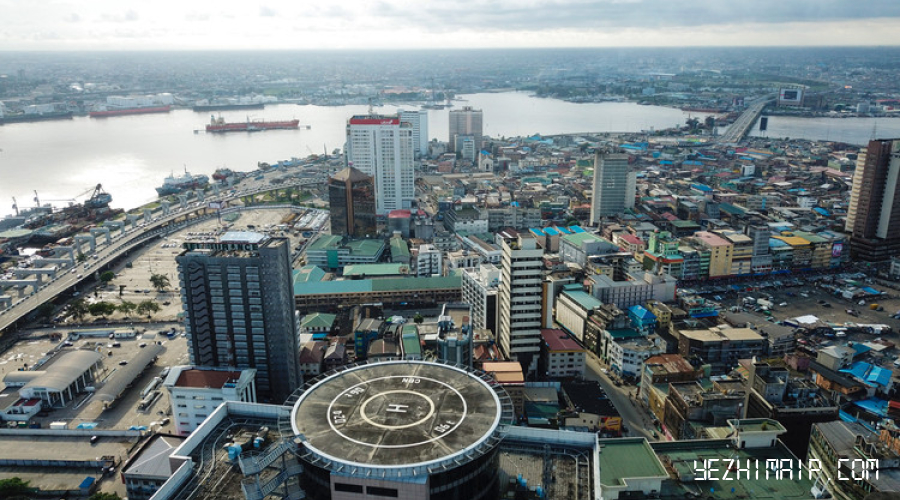
As soon as Nigeria is mentioned, one has to feel God's arrangement. The most populous country in Africa has suffered from poverty and civil war for a long time, but it is extremely rich in resources. Its proven oil reserves rank 10th in the world, and it is the 12th largest oil producer and the 8th largest oil exporter in the world. With low sulfur content and light specific gravity, it has become the best quality oil in the world. After completing the full Paris Club loan in 2006, Nigeria became the representative country of Africa's emerging markets.
After 2006, Nigeria developed rapidly. In terms of communications, major emerging market telecom operators MTN, Etisalat, Zain and Globacom have all launched business in the largest and most profitable center in Nigeria; the Nigerian Stock Exchange has become the second largest securities in Africa Exchanges; highly developed financial services, banks, asset management companies, insurance companies, and private equity and investment banks have seen a dramatic increase in business volume in Nigeria. At the same time, other industries such as natural gas, coal, bauxite, tantalite, gold, iron ore, Large-scale untapped and abundant natural resources such as limestone, tin, niobium, graphite and zinc are still in the primary mining stage. Freed from years of military rule, corruption and mismanagement, Nigeria's restoration of democracy and successful economic reforms are making it a $509 billion economy, surpassing South Africa to become the 20th largest in the world and Africa's largest.
In 2006, China National Offshore Oil Corporation purchased 45% of the working rights and interests in Nigeria's No. 130 offshore oil exploration license for US$2.268 billion. Since then, China has increasingly become Nigeria's most important trading partner, and Nigeria is China's largest project contracting market in Africa. The second largest export market, the third largest trading partner and the main investment destination country. More than 20 Chinese companies, including Huawei, ZTE, CCECC, and CGCOC, are involved in the fields of railways, housing construction, power stations, water conservancy, and communications in Nigeria.
Nigeria has increasingly recognized the catalytic role of knowledge capital in economic growth, especially during the COVID-19 pandemic. The superhuman resilience of the knowledge economy when oil prices fell sharply has ignited a new round of investment in intellectual property capital in Nigeria. According to the aspirations of Nigeria, it is just around the corner to become the largest center of innovation and creativity on the African continent.
An Introduction to the Nigerian Patent System
1. Nigerian patent application filing language
English
2. Types of patent protection:
inventions, designs
3. Paths for Chinese applicants to apply for patents in Nigeria
Paris Convention, via Nationalization of PCT to enter the Nigerian national phase, direct application
4. review unit
The Nigeria Commercial Law Bureau is affiliated to the Nigerian Ministry of Industry, Trade and Investment, Patents and Designs Registry, Commercial Law Department, referred to as PDR.
5. submission deadline
Paris Convention: 12 months; PCT access to the Nigerian national phase: 30 months; priority recovery is not accepted.
6. Review process
There is no substantive examination system in the Nigerian invention patent application process, only the formal content is examined, such as whether the required documents are complete, whether the fees are paid, and whether the invention is unitary. If the requirement of unity cannot be met, a divisional application should be filed within 3 months from the receipt of the PDR notification; active amendments can be made at any time before the granted.
There is no disclosure system in the Nigerian invention patent application procedure, and the patent application will be publicized in the authorized issuance bulletin;
There is no opposition system in the Nigerian invention patent application procedure.
7. Authorization and annual fee
Nigeria does not charge granted official fees. The annual fee is calculated from the date of application, but it should be paid after the patent is authorized. The fee should be paid within 3 months of receiving the granted notice. There is a 6 month late payment period.
Features of Nigerian Patents
1. Because there is no substantive examination procedure for invention patent applications, under normal circumstances, Nigerian patent applications can obtain patent certificates in about 4-6 months.
2. Nigeria is working to establish a digital intellectual property market for innovative SMEs to sell or license their intellectual property. This strategy will provide smooth market channels for the economic development of Nigerian SMEs and facilitate the commercialization of intellectual property.
3. Nigeria promulgated the new "Patent and Design Act" in 2019, which will greatly strengthen the protection of inventions and creations.
Friendliness to Chinese applicants:
★★★
Gold content of patent rights:
★★
The degree of perfection of the rights protection mechanism:
★★
联系咨询
 | Get exact prices For the country / regionE-mail: mail@yezhimaip.com |

